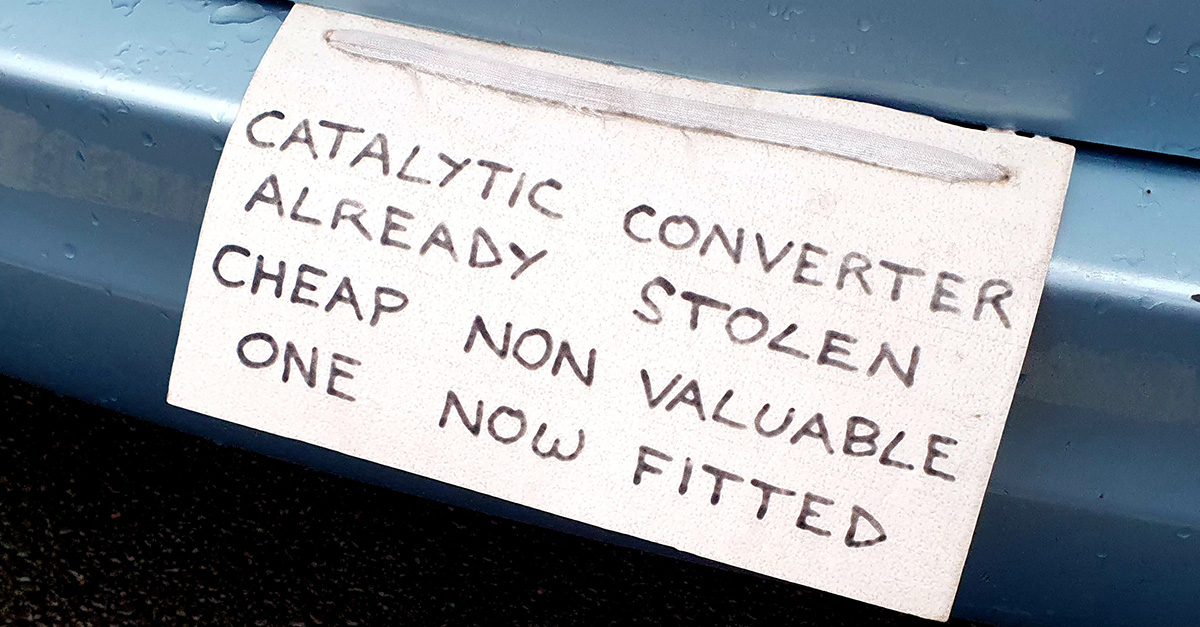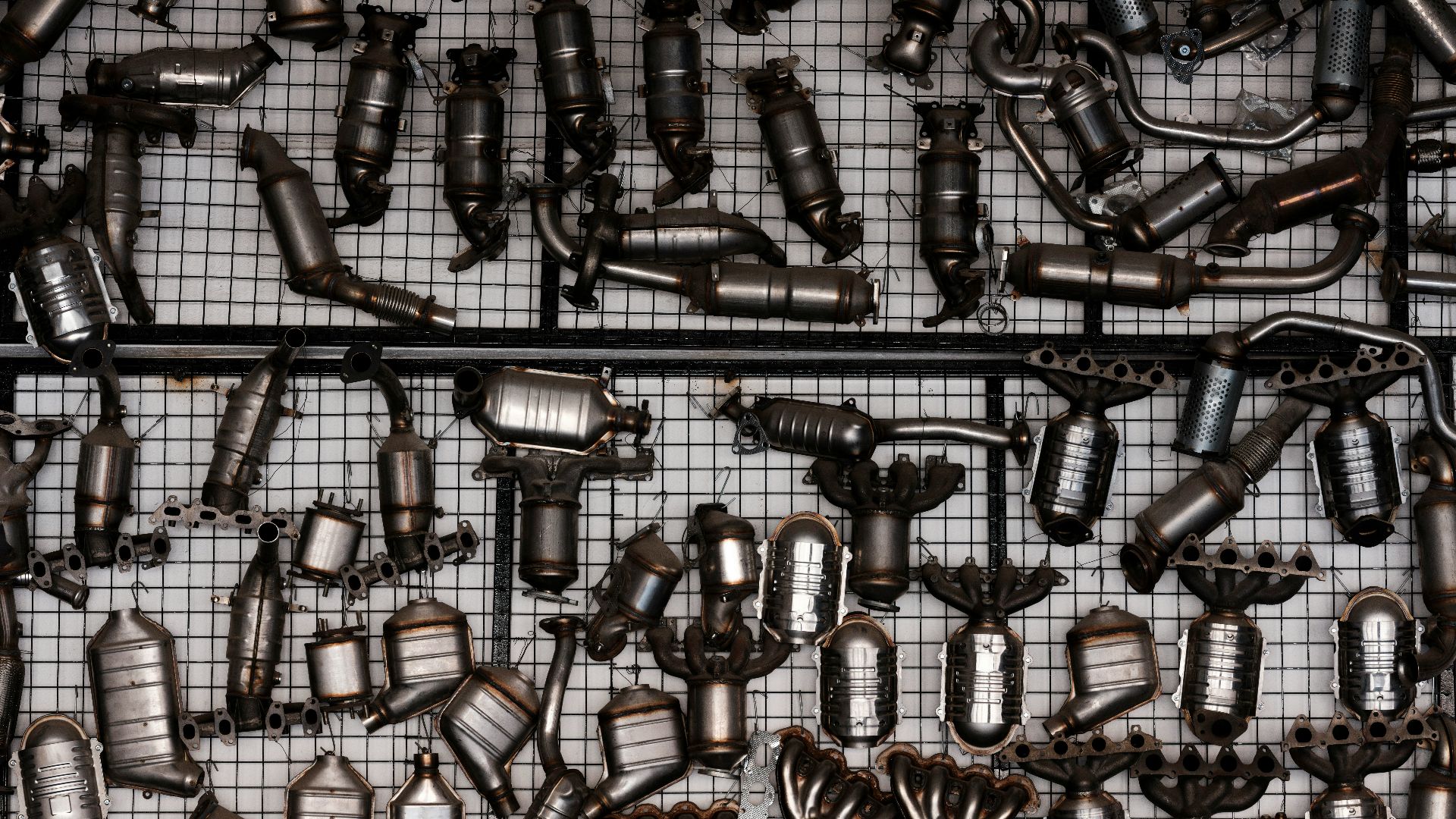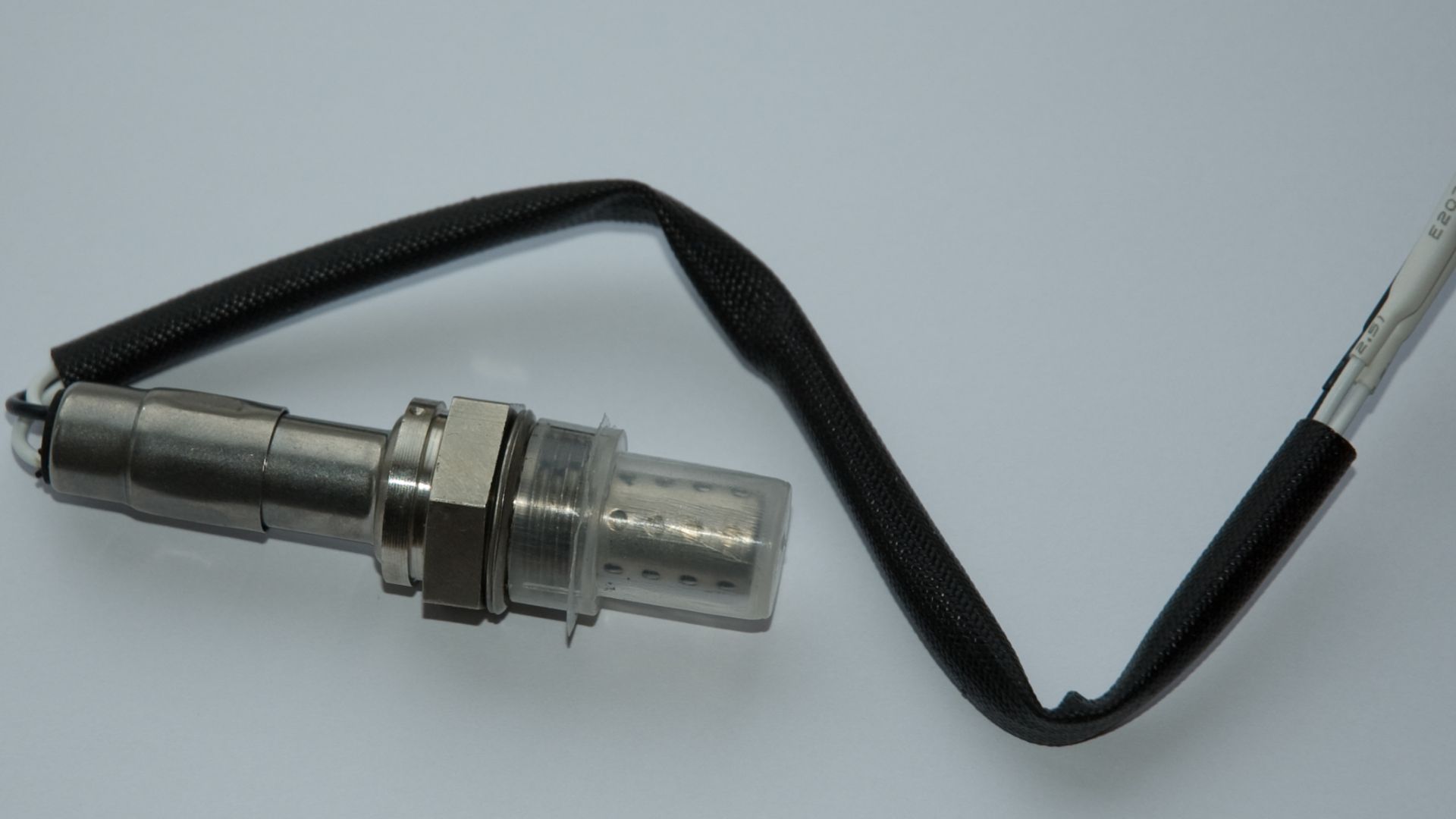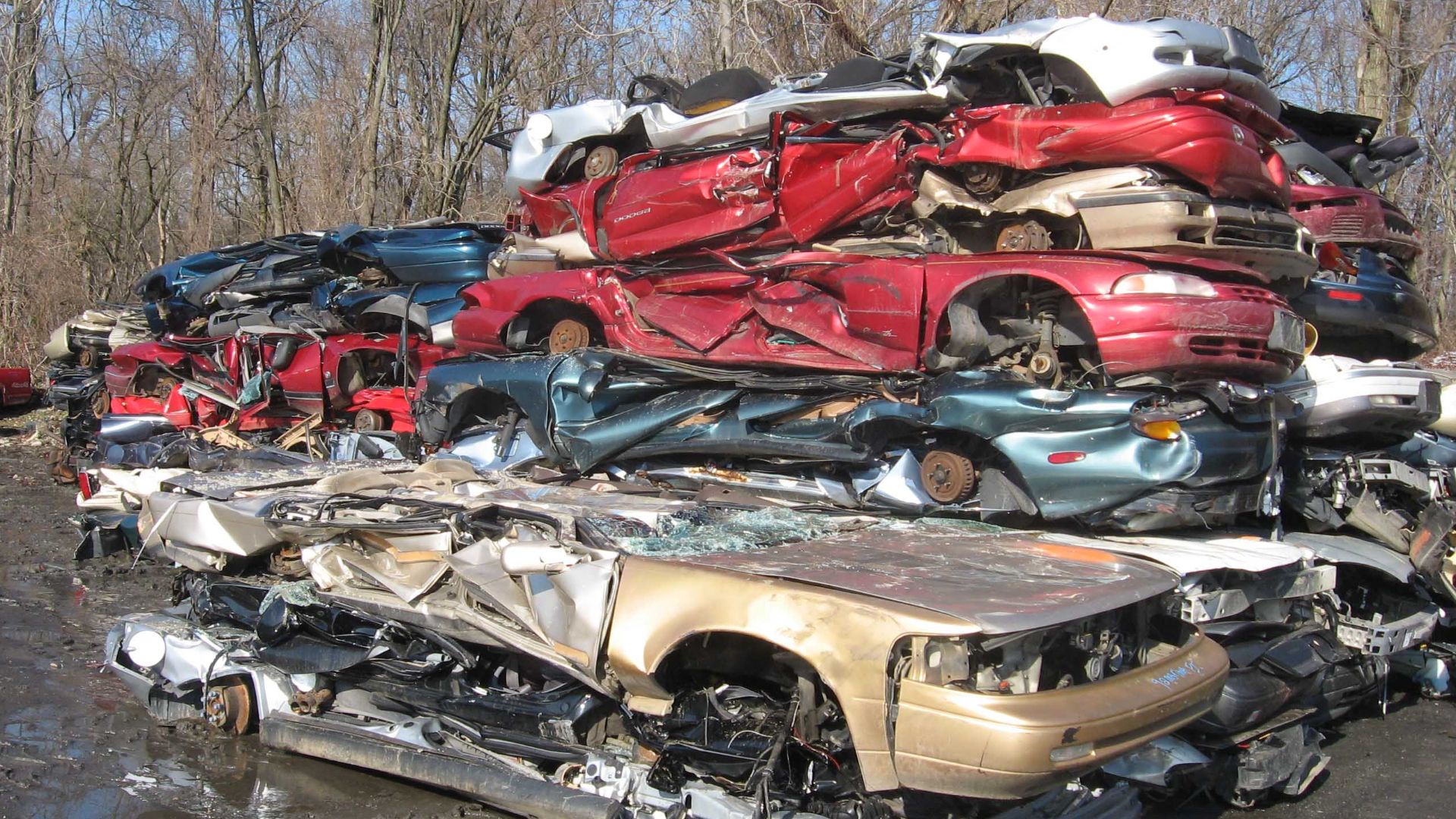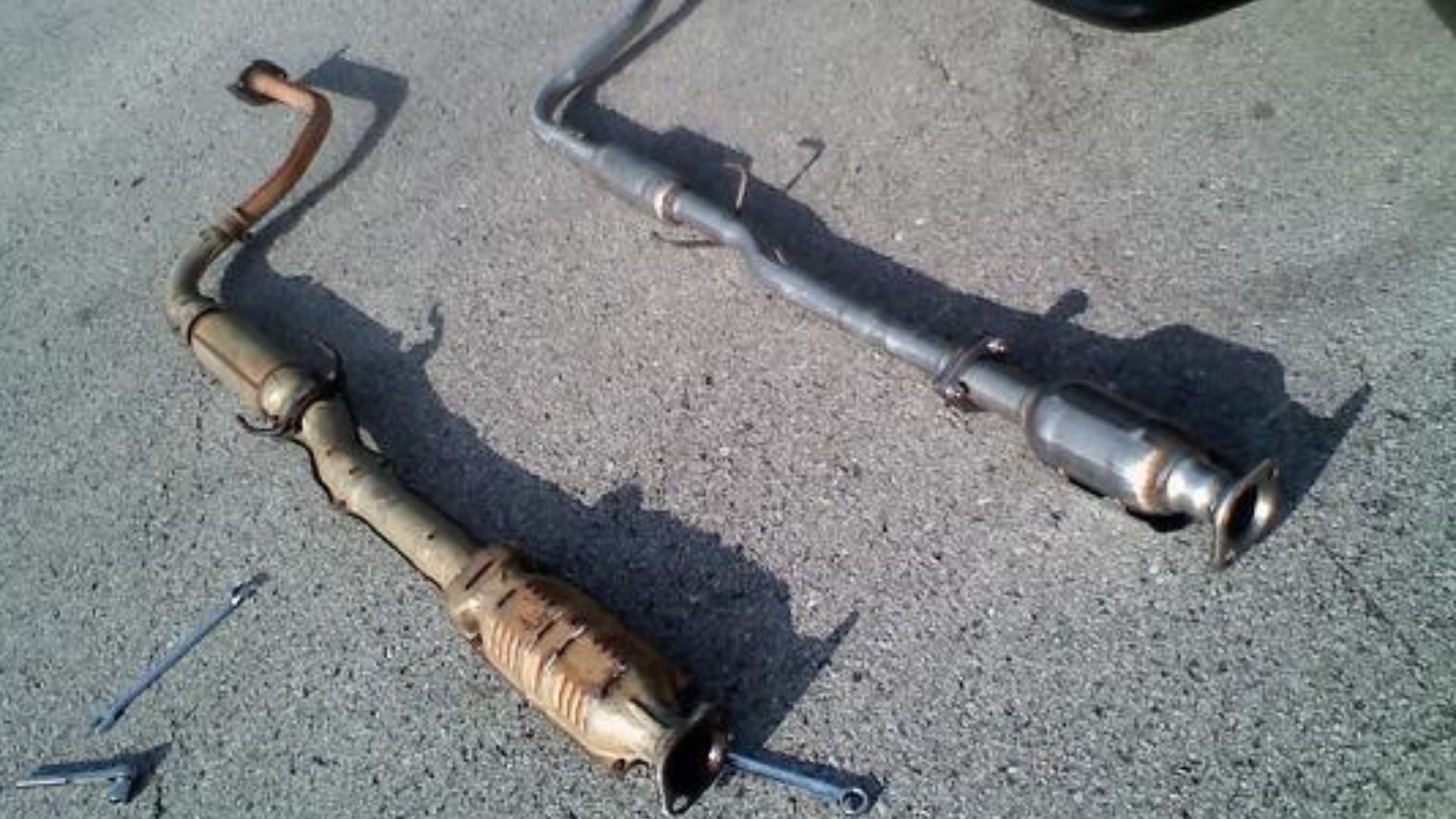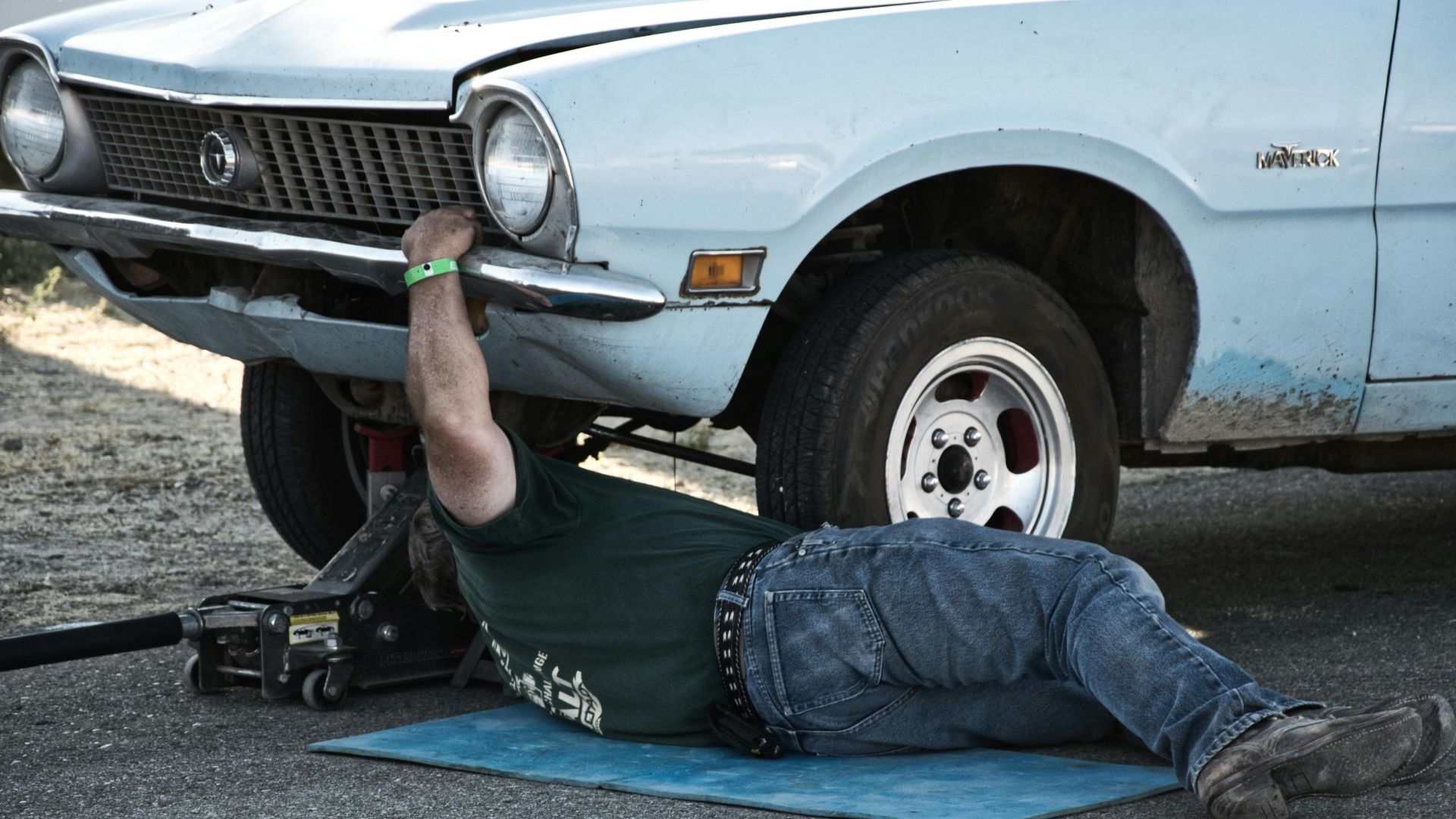When Your Car Suddenly Roars Like A Jet
There are few things more soul-crushing than walking out to your car in the morning, fresh coffee in hand, only to start the engine and hear a deafening roar that sounds like a furious lawnmower trapped inside your exhaust. That deep, guttural sound usually means one thing: your catalytic converter has been stolen. As if that shock isn’t enough, you call your insurance company expecting sympathy and financial rescue, only to discover the theft isn’t covered. So what now? Take a deep breath. You still have options—financial, mechanical, legal, and emotional—and understanding them will help you regain control of the situation.

Why Catalytic Converter Theft Is Out Of Control
Catalytic converter theft has skyrocketed because these humble exhaust components hide valuable precious metals like platinum, palladium, and rhodium. Thieves can crawl under a car, slice the converter off in minutes, and walk away with a part worth hundreds of dollars on the scrap market. Unfortunately, the repair bill left behind for victims is often far higher, which makes the crime both profitable for thieves and painful for everyday drivers.
How To Know For Sure Yours Was Stolen
The signs of catalytic converter theft are unmistakable, even for people who barely understand car mechanics. Your once-quiet car suddenly sounds like a motorcycle that’s lost its muffler. You might notice an oxygen sensor dangling from underneath your vehicle like a sad, detached plug. A look under the car usually reveals a clean, sawed-off section of the exhaust pipe where something clearly used to be. If these symptoms match what you’re seeing and hearing, then yes—you’re officially a member of this very unfortunate club.
Why Some Insurance Policies Don’t Cover It
A harsh truth hits many drivers only after the theft occurs: catalytic converter theft is covered only under comprehensive insurance. If your insurance policy includes liability only, then your insurer won’t pay anything toward the repair. Liability insurance focuses solely on damage you cause to other people or property, not damage caused by criminals targeting your vehicle in the night. It’s a frustrating gap that many drivers don’t realize exists until it’s too late.
Double-Check Your Coverage Anyway
Before giving up completely, take a moment to review your policy documents carefully. Insurance companies sometimes use confusing phrases like “other-than-collision loss,” which can actually refer to comprehensive coverage without using the word directly. Miscommunications happen frequently between agents and customers, and it’s possible your policy includes more than you remember. A second look might save you a significant amount of money.
If You Don’t Have Comprehensive, Here’s Why
Most drivers who lack comprehensive coverage made that choice intentionally at some point. Since comprehensive insurance is optional unless your car is financed, many people remove it as their vehicles age in order to save money on premiums. That decision often feels smart—until someone decides the most valuable part of your car is attached to the underside of it. Suddenly, the coverage you dropped years ago feels painfully relevant again.
File A Police Report Anyway
Even if your insurance won’t cover the theft, it’s important to file a police report. Doing so creates official documentation that may help if the thieves are ever caught or if investigators recover stolen parts. Some repair shops ask to see the report before beginning work, and a few states offer victim compensation programs that require formal proof of the crime. Filing also contributes to local crime statistics, which can influence future enforcement and prevention efforts.
Call Local Muffler & Exhaust Shops
If you’re paying out of pocket, your new mission is finding the most affordable repair option. Dealerships often quote prices between $1,500 and $4,000 for catalytic converter replacements, which is enough to make anyone queasy. Independent exhaust or muffler shops, however, may offer aftermarket solutions that cost a fraction of that amount. Their prices are typically far lower, and many of these shops can get you back on the road much faster.
Ask About Aftermarket Catalytic Converters
Aftermarket catalytic converters can dramatically reduce repair costs and are fully legal in most states. These parts are made with fewer precious metals, which makes them cheaper to manufacture and far less appealing to thieves. While they may not last quite as long as an original equipment manufacturer (OEM) part, they can still perform well and help protect you from becoming an easy target again. It’s worth discussing the options with your mechanic to see what fits your vehicle and budget.
Look For State Assistance Programs
Several states, including California, Minnesota, and Oregon, have introduced programs designed to help victims of catalytic converter theft. These initiatives often provide financial assistance for parts, labor, or anti-theft devices to reduce the likelihood of a repeat incident. Checking your state’s official website or contacting the DMV may reveal programs you didn’t know existed, and you might qualify for help you didn’t expect.
Research Class-Action Lawsuits
In some regions, class-action lawsuits have emerged against scrap yards, manufacturers, or even local governments for failing to regulate converter sales or enforce metal-recycling laws. While these lawsuits won’t help you pay for today’s repairs, they might lead to settlements or reimbursements down the road. Keeping an eye on legal developments in your state could eventually pay off—literally.
Talk To Your Mechanic About Temporary Fixes
While driving without a catalytic converter isn’t ideal—or legal for extended periods—a mechanic might be able to install a temporary straight pipe or patch that allows your car to function while you gather funds for a proper repair. Your vehicle won’t run perfectly, and you may fail emissions testing, but a temporary fix can at least help you stay mobile during the repair process. Laws vary by location, so your mechanic can advise you on what’s allowed.
Consider Used Or Refurbished Converter
Some repair shops sell refurbished or reconditioned catalytic converters that meet emissions standards but cost significantly less than brand-new ones. These parts aren’t available everywhere, and regulations about used converters can vary by state. However, if you’re looking for cost-effective solutions and your area allows refurbished parts, this option might save you hundreds of dollars.
Preventing A Repeat Theft
After replacing your catalytic converter, protecting the new one becomes essential. Installing a catalytic converter shield, wrapping the part in heavy-duty steel cables, or having your mechanic weld a reinforced cage around it can add valuable layers of security. Engraving your VIN or license plate number onto the converter also helps deter thieves and assist police in tracing stolen parts. While no protection strategy is perfect, these steps make your vehicle a far less attractive target.
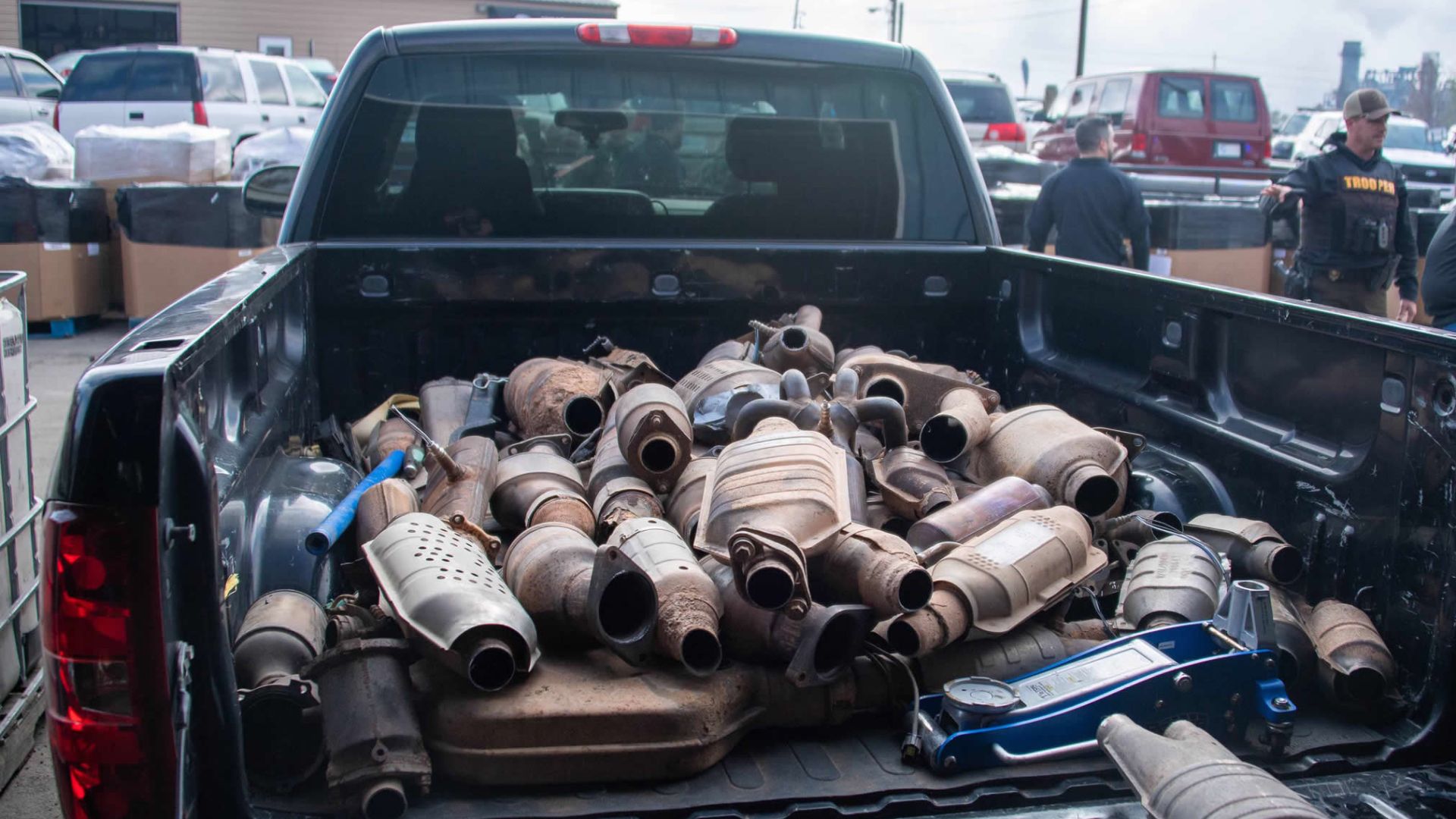 Unknown author, Wikimedia Commons
Unknown author, Wikimedia Commons
Be Strategic About Where You Park
Parking habits can play a huge role in preventing future thefts. Thieves prefer vehicles parked in dark, quiet areas where they can work without being noticed. Choosing well-lit locations, parking inside a garage when possible, or leaving your car in places with regular foot traffic can all help reduce the likelihood of being targeted again. Even small adjustments in where you leave your vehicle overnight can make a significant difference.
Why Hybrids & SUVs Are Bigger Targets
Hybrid vehicles and SUVs are favorites among catalytic converter thieves for several reasons. Hybrids, especially models like the Toyota Prius, contain higher concentrations of precious metals because their engines run cleaner, meaning the converters don’t degrade as quickly. Meanwhile, SUVs sit higher off the ground, giving thieves easier access to the underside without needing a jack. If your vehicle falls into either category, taking extra precautions becomes even more important.
Ask Your Employer About Secure Parking
Because converter theft has become such a widespread problem, some employers now offer secure parking options, including fenced lots, key-card garages, or areas monitored by surveillance cameras. Asking your workplace whether any of these options exist is worthwhile, especially if you’ve already been victimized. Employers often want to support staff safety, and you might discover resources you didn’t know were available.
Join Local Community Groups
Online neighborhood groups, whether on Facebook, Nextdoor, or local forums, frequently share real-time updates about thefts, suspicious behavior, and preventative strategies. Staying plugged into these networks can help you identify theft hotspots or patterns in your area, and you may even receive tips or warnings before crime spikes. The more connected your community is, the stronger its collective defense becomes.
Know The Signs Of Repeat Targeting
Some neighborhoods experience clusters of converter thefts, and thieves often revisit areas where they’ve had success. If you start noticing cars on your street with freshly welded exhaust pipes, seeing saw marks on the pavement, or spotting suspicious individuals lingering near parked vehicles late at night, these may be signs that thieves are active again. Recognizing these patterns early can help you take extra precautions before becoming a victim twice.
 Unknown author, Wikimedia Commons
Unknown author, Wikimedia Commons
What To Do If You Suspect A Thief Was Caught
Police occasionally recover stolen catalytic converters, but without markings or identification, reuniting them with owners is difficult. If you had your converter engraved or documented in any way before the theft, you increase the odds of reclaiming it if authorities seize stolen parts. While getting the original back won’t erase the frustration, it can save you money and close the loop on the crime.
Should You Upgrade Your Insurance Now?
Experiencing a catalytic converter theft is a strong signal that upgrading your insurance is a wise decision. Adding comprehensive coverage is one of the most effective tools for protecting your vehicle from future thefts or vandalism. Even if your car isn’t particularly valuable, the cost of replacing a converter can easily exceed the price of the vehicle itself, making comprehensive coverage a surprisingly smart investment.
How Much Comprehensive Usually Costs
In most regions, comprehensive coverage costs between $100 and $300 per year, depending on your vehicle, location, and driving history. Considering that a catalytic converter replacement can run well into the thousands, the numbers make a compelling case for the upgrade. For many drivers, this relatively small annual expense provides significant peace of mind.
Consider Adding Rental Reimbursement
If your catalytic converter is stolen again—and we sincerely hope it isn’t—you may find yourself without transportation while repairs are underway. Adding rental reimbursement coverage to your policy ensures you’ll have access to a temporary vehicle without dipping into your savings. It’s an inexpensive add-on that can save you substantial inconvenience during repair delays.
Keep All Receipts For Future Claims
Even if your current policy doesn’t cover catalytic converter theft, keeping thorough records of all repairs and receipts can be extremely beneficial. If you later upgrade your coverage, documentation can clarify to your insurer that any new damage isn’t preexisting. Organized paperwork makes future claims simpler and protects you from misunderstandings that can delay payouts.
Understand Total Loss Scenarios
For older vehicles, the cost of replacing a catalytic converter can sometimes exceed the vehicle’s value, prompting insurance companies to declare the car a total loss. If this happens and you believe the valuation is too low, you do have the right to negotiate. Providing market comparisons, maintenance records, and evidence of your vehicle’s condition can help strengthen your case.
When It Might Be Time To Replace The Vehicle
If the repair costs are overwhelming and your car’s overall value is declining, the theft might be an unexpected sign that it’s time to move on. While replacing a vehicle because of a stolen catalytic converter feels unfair, upgrading to a newer car with better security features and less expensive repair needs can save you from future headaches. Sometimes the silver lining is a fresh start.
You’ve Got More Options Than You Think
Having your catalytic converter stolen is frustrating, expensive, and sometimes downright infuriating—especially when your insurance company can’t help. But you’re not without solutions. By filing reports, exploring affordable repair options, researching state assistance, joining neighborhood safety networks, and upgrading your insurance, you can recover from the theft and protect yourself from future trouble. Thieves may love catalytic converters, but they can’t steal your knowledge—and now you’re far better equipped to handle whatever comes next.
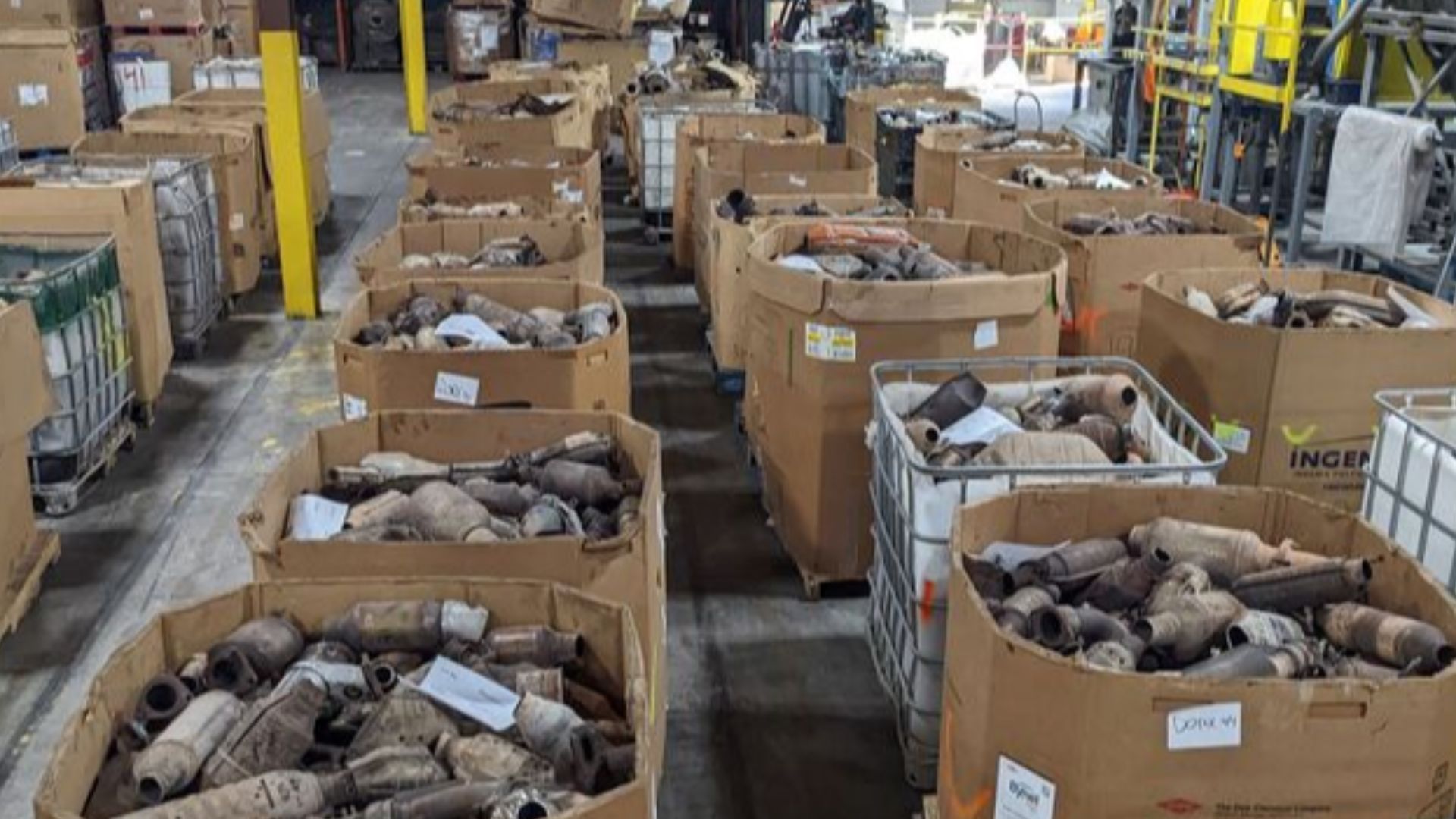 Unknown author, Wikimedia Commons
Unknown author, Wikimedia Commons
You May Also Like:
The Best Quick Guide To Buying Tires
Every Driver Should Steal These Simple Tricks That Professional Car Detailers Use

